Are dry, irritated eyes affecting your daily life? At Save Sight Centre, we provide expert care to treat dry eyes and bring you lasting relief. Using advanced technology and personalized care, our specialists ensure your eyes feel comfortable and healthy again. Dry eyes can make you hard to see and focus on objects. It is important to take care of and prevent it on regular basis.
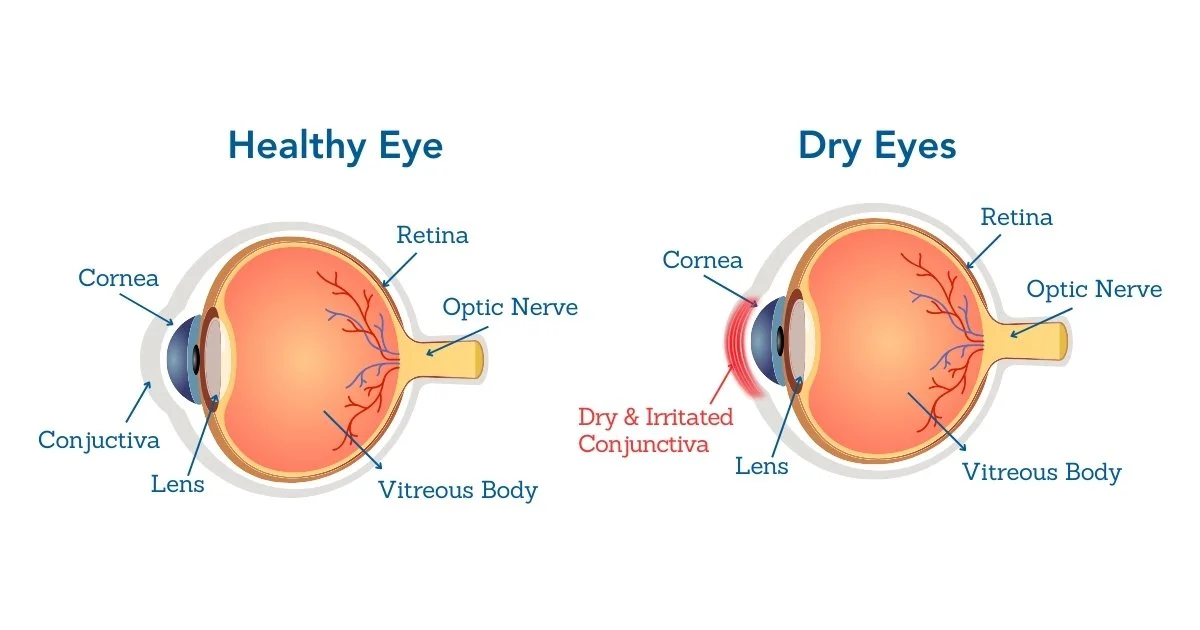
Dry eye syndrome happens when your eyes don't make enough tears or when your tears evaporate too quickly. This can cause irritation, redness, and even blurry vision. Over time, untreated dry eyes may harm your eye health.
It’s not a disease, but should be considered to get clear vision.
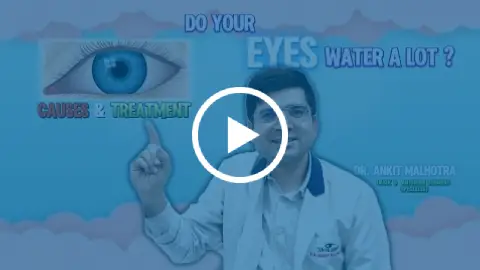
Dry eyes can feel uncomfortable. Here are some common symptoms:
If you notice these symptoms, book a consultation with our experts by visiting our Contact Us page.
Dry eyes can cause discomfort, irritation, and even blurry vision. At Save Sight Centre, we offer a range of effective treatments tailored to your specific condition. Our goal is to restore moisture, improve tear quality, and provide long-lasting relief. Below are the treatment options available:
Artificial tears are lubricating eye drops that help keep your eyes hydrated and comfortable throughout the day.
How They Work:
Steps in Treatment:
1. Our specialists assess the severity of your dry eyes.
2. We recommend the most suitable artificial tear brand based on your symptoms.
3. You use the drops as instructed, typically 3-4 times a day or more if needed.
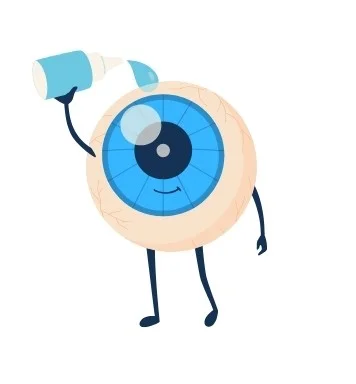
Punctal plugs are tiny medical devices inserted into your tear ducts to slow down tear drainage, keeping your eyes moist for longer.
How They Work:
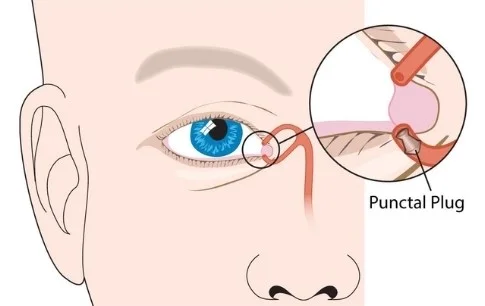
Steps in Treatment:
1. The doctor numbs your eye for a painless procedure.
2. A tiny plug is inserted into the tear duct using a specialized tool.
3. You may feel immediate relief as moisture is retained.
4. If necessary, the plug can be removed or replaced in the future.
IPL therapy is an advanced treatment for dry eyes caused by meibomian gland dysfunction (MGD), a common condition where oil-producing glands in the eyelids become blocked.
How They Work:
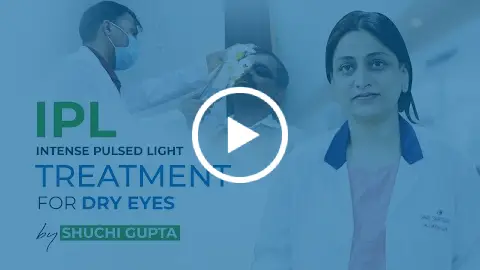
1. Protective goggles are placed over your eyes.
2. A cooling gel is applied to the treatment area (eyelids and surrounding skin).
3. The doctor uses an IPL device to deliver light pulses.
4. Over 3-4 sessions, the treatment gradually improves gland function and tear stability.
For moderate to severe dry eye cases, anti-inflammatory eye drops may be prescribed to boost tear production and reduce irritation.
Types of Medications Used:
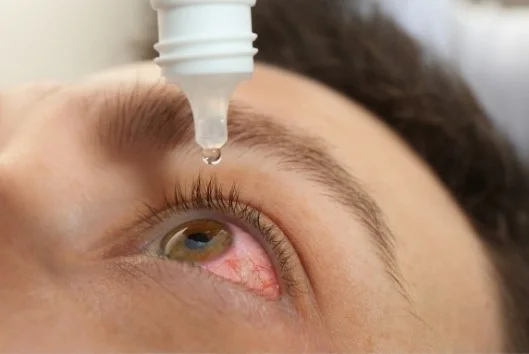
Steps in Treatment:
1. The doctor evaluates your eye condition to determine the best medication.
2. You receive a prescription with clear usage instructions.
3. Regular follow-ups ensure the treatment is working effectively.
In addition to medical treatments, our specialists provide expert guidance on lifestyle adjustments that can naturally improve dry eye symptoms.
Key Lifestyle Tips:

Steps in Treatment:
1. Our team assesses your daily routine and identifies lifestyle factors affecting your eyes.
2. You receive personalized recommendations on diet, screen use, and hydration.
3. We guide you on home remedies and long-term habits to maintain eye comfort.
Don’t let dry eyes disrupt your life. At Save Sight Centre, we’re dedicated to providing top-quality care for your eyes. Take the first step towards healthier eyes.
You can follow the follow tips to prevent:
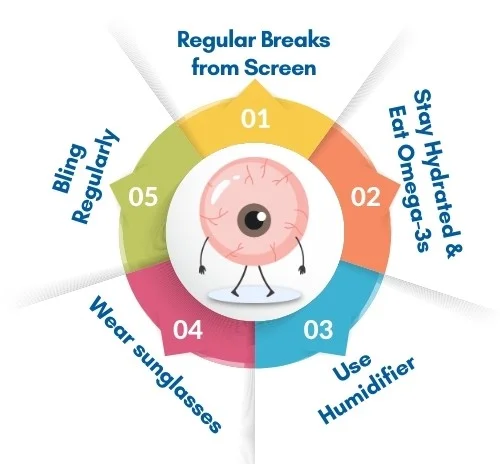
If you are in Delhi and looking for an expert to treat this eye problem, you can consult Dr. Rajeev Jain, Dr. Shuchi Gupta, and Dr. Ankit Malhotra at Save Sight Centre. They are highly experienced eye specialists known for their patient-focused care and advanced treatment methods. Whether you need a thorough eye check-up, expert advice, or a specialized procedure, they ensure the best possible care for your vision. With state-of-the-art technology and a compassionate approach, Save Sight Centre is a trusted place for all your eye health needs.
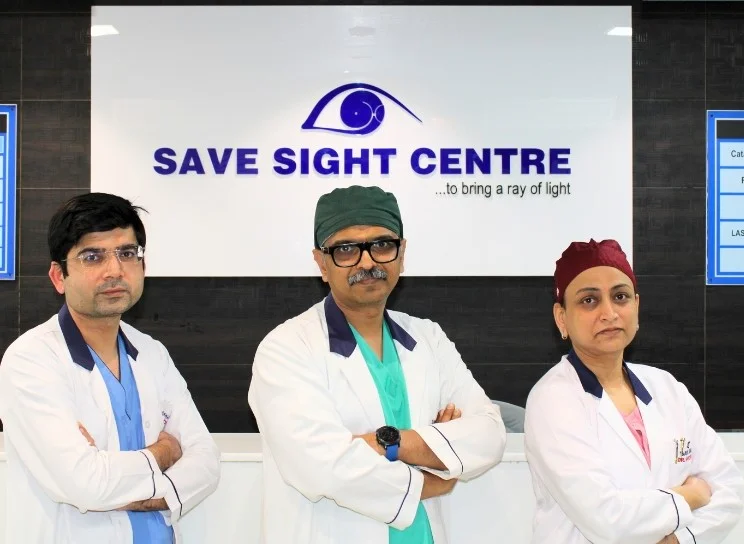
Results vary, but most patients feel relief within a few weeks of starting treatment.
Dry eyes can often be managed effectively, but it depends on the cause. Our specialists will recommend the best treatment plan for you.
Yes, IPL is a safe and effective procedure performed by our trained specialists.
Copyright © 2025 | Save Sight Centre | All Rights Reserved.